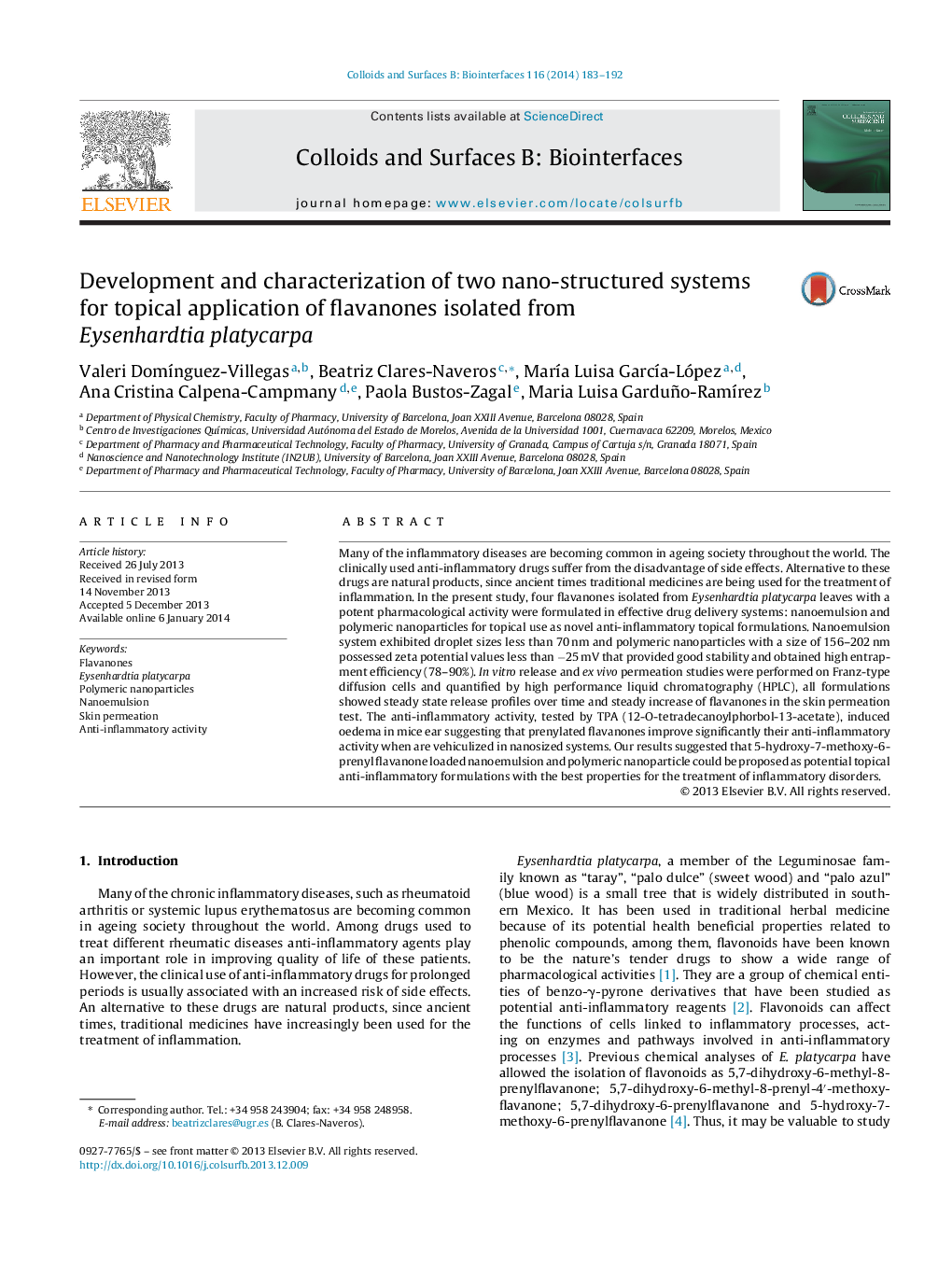| Article ID | Journal | Published Year | Pages | File Type |
|---|---|---|---|---|
| 6983214 | Colloids and Surfaces B: Biointerfaces | 2014 | 10 Pages |
Abstract
Many of the inflammatory diseases are becoming common in ageing society throughout the world. The clinically used anti-inflammatory drugs suffer from the disadvantage of side effects. Alternative to these drugs are natural products, since ancient times traditional medicines are being used for the treatment of inflammation. In the present study, four flavanones isolated from Eysenhardtia platycarpa leaves with a potent pharmacological activity were formulated in effective drug delivery systems: nanoemulsion and polymeric nanoparticles for topical use as novel anti-inflammatory topical formulations. Nanoemulsion system exhibited droplet sizes less than 70Â nm and polymeric nanoparticles with a size of 156-202Â nm possessed zeta potential values less than â25Â mV that provided good stability and obtained high entrapment efficiency (78-90%). In vitro release and ex vivo permeation studies were performed on Franz-type diffusion cells and quantified by high performance liquid chromatography (HPLC), all formulations showed steady state release profiles over time and steady increase of flavanones in the skin permeation test. The anti-inflammatory activity, tested by TPA (12-O-tetradecanoylphorbol-13-acetate), induced oedema in mice ear suggesting that prenylated flavanones improve significantly their anti-inflammatory activity when are vehiculized in nanosized systems. Our results suggested that 5-hydroxy-7-methoxy-6-prenyl flavanone loaded nanoemulsion and polymeric nanoparticle could be proposed as potential topical anti-inflammatory formulations with the best properties for the treatment of inflammatory disorders.
Related Topics
Physical Sciences and Engineering
Chemical Engineering
Colloid and Surface Chemistry
Authors
Valeri DomÃnguez-Villegas, Beatriz Clares-Naveros, MarÃa Luisa GarcÃa-López, Ana Cristina Calpena-Campmany, Paola Bustos-Zagal, Maria Luisa Garduño-RamÃrez,
